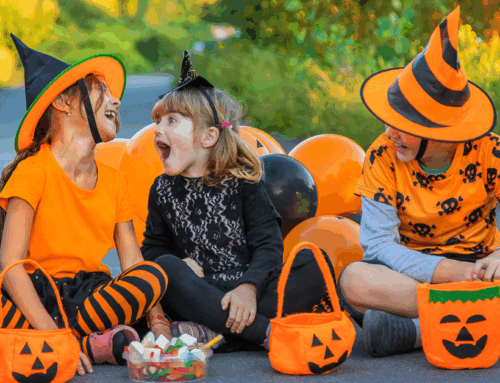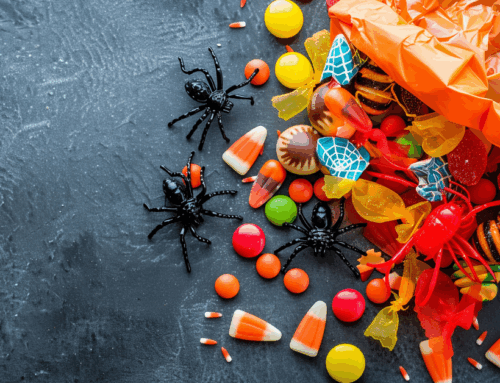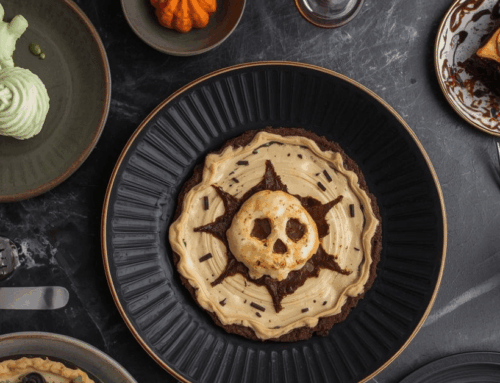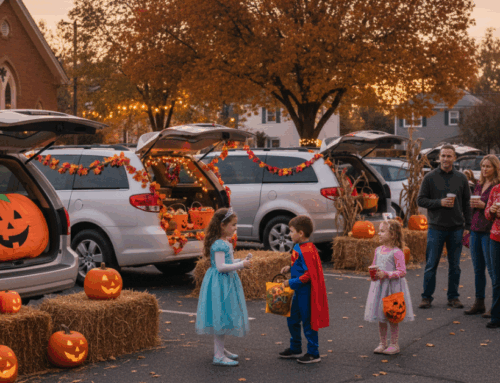As October 31st approaches, many parts of the world prepare for the spooky celebrations of Halloween.
But what about France, a country known for its rich cultural traditions? Is Halloween celebrated in France, or does this predominantly Anglo-Saxon holiday fail to find footing in the land of wine and cheese? Let’s explore the intriguing journey of Halloween in French society, from its introduction to its current status.
History of Halloween in France
To understand Halloween’s place in France, we must first examine the country’s traditional autumn celebrations. For centuries, the French have observed La Toussaint (All Saints’ Day) on November 1st, a solemn occasion to honor the dead.
This Catholic holiday, deeply ingrained in French culture, involves visiting cemeteries and placing chrysanthemums on the graves of loved ones.
With its playful and sometimes macabre character, Halloween entered the French scene relatively recently. It began to make its presence known in France in the late 1990s, primarily through American cultural influences and marketing efforts.
Initial Reception and Controversies
The introduction of Halloween in France was met with mixed reactions:
- Enthusiasm: Some French people, especially the younger generation, embraced Halloween’s fun and festive aspects.
- Skepticism: Others viewed it as an unwelcome American import, threatening to overshadow traditional French holidays.
- Commercialization concerns: Critics argued that Halloween was merely a business ploy to increase sales during a typically quiet retail period.

Current Halloween Celebrations in France
While Halloween in France may not reach the same fever pitch as in the United States or Ireland, it has carved out a niche in French society. Here’s how the French typically celebrate Halloween:
- Costume Parties: These are particularly popular among young adults and in urban areas.
- Themed Events: Attractions like Disneyland Paris and nightclubs often host special Halloween nights.
- Trick-or-Treating: This practice is less common and is usually limited to select neighborhoods or organized events.
Regional Differences
It’s worth noting that Halloween celebrations in France can vary significantly by region:
- Paris and other major cities tend to have more Halloween events and decorations.
- Rural areas and smaller towns often maintain a stronger focus on traditional Toussaint observances.
- Regions with higher concentrations of expatriates or international residents may see more enthusiastic Halloween celebrations.
French Halloween vs. American Halloween
While Halloween in France borrows many elements from its American counterpart, there are notable differences:
Similarities:
- Costume wearing
- Pumpkin decorations
- Spooky-themed parties
Key Differences:
- Scale: Halloween celebrations in France are generally smaller and less ubiquitous.
- Duration: While Americans might celebrate Halloween throughout October, French Halloween activities are usually limited to October 31st or the weekend closest to it.
- Trick-or-Treating: This practice is less common and often organized by schools or community groups rather than a widespread neighborhood activity.

Commercial Aspects of Halloween in France
The commercial side of Halloween in France presents an interesting case study in cultural adaptation:
- Retail and Marketing: Many stores now offer Halloween-themed products, from costumes to decorations. However, the selection is typically more limited compared to countries where Halloween is a major holiday.
- Impact on Local Businesses: Some French businesses, particularly in the hospitality and entertainment sectors, have found ways to incorporate Halloween themes into their offerings.
- Comparison to Other French Holidays: While growing in popularity, Halloween’s commercial impact in France still pales compared to traditional holidays like Christmas or Bastille Day.
Cultural Debate: Acceptance vs. Resistance
The presence of Halloween in France continues to spark debate among the populace:
Arguments for Embracing Halloween:
- Cultural exchange: Proponents argue that adopting foreign traditions enriches French culture.
- Economic benefits: Halloween events and product sales can boost certain sectors of the economy.
- Fun and creativity: Many appreciate Halloween as an opportunity for imaginative costumes and lighthearted celebrations.
Criticisms and Concerns:
- Cultural imperialism: Some view Halloween as an unwelcome American cultural import that threatens French traditions.
- Commercialization: Critics argue that Halloween promotes unnecessary consumerism.
- Conflict with Toussaint: There are concerns that Halloween’s playful nature disrespects the solemnity of All Saints’ Day.

Halloween’s Influence on French Pop Culture
Despite the ongoing debate, Halloween has made inroads into French popular culture:
- Movies and TV Shows: French media now produces Halloween-themed content, though less than in anglophone countries.
- Literature and Arts: Some French artists and writers have incorporated Halloween themes into their work, often with a uniquely French twist.
- Social Media: Halloween costume contests and party photos have become increasingly common on French social media platforms.
The Future of Halloween in France
As we look ahead, several trends suggest the future direction of Halloween in France:
- Gradual Integration: Halloween will likely continue to find its place in French culture, albeit in a form that aligns with French sensibilities.
- Youth Adoption: Younger generations, more exposed to global influences, may drive increased acceptance of Halloween celebrations.
- Commercialization Balance: French businesses may find ways to incorporate Halloween that feel less overtly commercial and more aligned with French cultural values.

Conclusion
So, is Halloween celebrated in France? The answer is yes, but it has a distinctly French flavor. While it may never reach its prominence in countries like the United States, Halloween has found a place in the French cultural landscape. It is a fascinating case study of how global traditions are adopted and adapted across cultures.
As France continues to navigate the balance between preserving its rich cultural heritage and embracing global influences, Halloween’s position in French society will likely continue to evolve. Whether viewed as a welcome addition to the cultural calendar or an import, Halloween in France demonstrates the complex interplay of tradition, commerce, and cultural exchange in our increasingly interconnected world.






